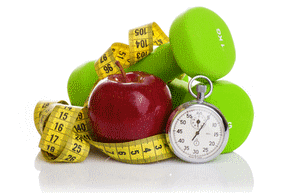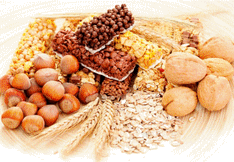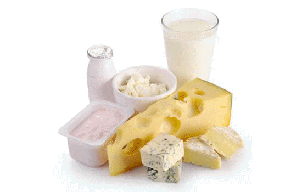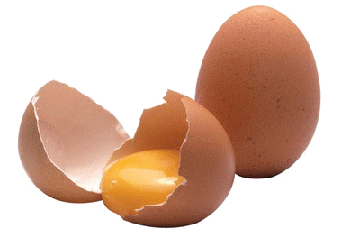
Some Useful Tips for a Healthy Diet
 The Healthy Living Pyramid encourages food variety and a diet of minimum fat, adequate fibre, limited salt and sufficient water that is balanced with physical activity. This base layer of food includes only plant foods: vegetables, fruits, nuts, dried peas, beans and lentils, breads and cereals (preferably wholegrain). These foods contain many different nutrients and should make up the bulk of the food we eat. Eating a variety of these foods each day should provide good amounts of energy from carbohydrate, as well as protein, minerals, vitamins and dietary fibre. In other words these foods are nutrient dense. Foods in the middle of the Pyramid include fish, lean meat, eggs, chicken (no skin), milk, cheese and yoghurt. Eating a serving of meat, fish or eggs and three servings of dairy foods each day will provide protein, minerals (especially iron and calcium) and B vitamins. Sugars and fats are in this layer. These foods should be limited because they lack a good supply of the nutrients needed for growth, good health and quick energy. While small amounts of fats, oils and sugar are acceptable, larger amounts of these foods will cause an inadequately varied food intake.
The Healthy Living Pyramid encourages food variety and a diet of minimum fat, adequate fibre, limited salt and sufficient water that is balanced with physical activity. This base layer of food includes only plant foods: vegetables, fruits, nuts, dried peas, beans and lentils, breads and cereals (preferably wholegrain). These foods contain many different nutrients and should make up the bulk of the food we eat. Eating a variety of these foods each day should provide good amounts of energy from carbohydrate, as well as protein, minerals, vitamins and dietary fibre. In other words these foods are nutrient dense. Foods in the middle of the Pyramid include fish, lean meat, eggs, chicken (no skin), milk, cheese and yoghurt. Eating a serving of meat, fish or eggs and three servings of dairy foods each day will provide protein, minerals (especially iron and calcium) and B vitamins. Sugars and fats are in this layer. These foods should be limited because they lack a good supply of the nutrients needed for growth, good health and quick energy. While small amounts of fats, oils and sugar are acceptable, larger amounts of these foods will cause an inadequately varied food intake.
|

Take little steps instead of a radical change
Changing everything at once usually leads to cheating or giving up on your new eating plan. To set yourself up for success, think about planning a healthy diet as a number of small, manageable steps, like adding a salad to your diet once a day, rather than one big drastic change. As your small changes become habit, you can continue to add more healthy choices. Start by preparing more of your own meals, trying to simplifying your diet, and also by drinking plenty of water.
Eat only how much food your body needs

Key to any healthy diet is moderation. But what is moderation? In essence, it means eating only as much food as your body needs. You should feel satisfied at the end of a meal, but not stuffed. Moderation is also about balance. Despite what fad diets would have you believe, we all need a balance of protein, fat, fiber, carbohydrates, vitamins, and minerals to sustain a healthy body. For many of us, moderation also means eating less than we do now. But it doesn't mean eliminating the foods you love. Eating bacon for breakfast once a week, for example, could be considered moderation if you follow it with a healthy lunch and dinner,but not if you follow it with a box of donuts and a sausage pizza. If you eat 100 calories of chocolate one afternoon, balance it out by deducting 100 calories from your evening meal. If you're still hungry, fill up with extra vegetables.
Cut back on sugar

Aside from portion size, perhaps the single biggest problem with the modern Western diet is the amount of added sugar in our food. As well as creating weight problems, too much sugar causes energy spikes and has been linked to diabetes, depression, and even an increase in suicidal behaviors in young people. Reducing the amount of candy and desserts you eat is only part of the solution as sugar is also hidden in foods such as bread, cereals, canned soups and vegetables, pasta sauce, margarine, instant mashed potatoes, frozen dinners, low-fat meals, fast food, and ketchup. Your body gets all it needs from sugar naturally occurring in food so all this added sugar just means a lot of empty calories.
Eat plenty of colorful fruits and vegetables
Fruits and vegetables are low in calories and nutrient dense, which means they are packed with vitamins, minerals, antioxidants, and fiber. Focus on eating the recommended daily minimum of five servings of fruit and vegetables and it will naturally fill you up and help you cut back on unhealthy foods. A serving is half a cup of raw fruit or veg or a small apple or banana, for example. Most of us need to double the amount we currently eat. To increase your intake, add berries to breakfast cereals, eat fruit for dessert, swap your usual side dish for a salad, and snack on vegetables such as carrots, snow peas, or cherry tomatoes instead of processed snack foods.
Fill up on fiber

Eating foods high in dietary fiber can help you stay regular, lower your risk for heart disease, stroke, and diabetes, and help you lose weight. Depending on your age and gender, nutrition experts recommend you eat at least 21 to 38 grams of fiber per day for optimal health. Many of us aren't eating half that amount.
Choose healthy carbs and whole grains
Choose healthy carbohydrates and fiber sources, especially whole grains, for long-lasting energy. Whole grains are rich in phytochemicals and antioxidants, which help to protect against coronary heart disease, certain cancers, and diabetes.
Add calcium for bone health

Your body uses calcium to build healthy bones and teeth, keep them strong as you age, send messages through the nervous system, and regulate the heart's rhythm. If you don't get enough calcium in your diet, your body will take calcium from your bones to ensure normal cell function, which can lead to osteoporosis. Recommended calcium levels are 1000 mg per day, 1200 mg if you are over 50 years old. Try to get as much from food as possible and use only low dose calcium supplements to make up any shortfall. Limit foods that deplete your body's calcium stores (caffeine, alcohol, sugary drinks), do weight-bearing exercise, and get a daily dose of magnesium and vitamins D and K nutrients that help calcium do its job.

Put protein in perspective
Protein gives us the energy to get up and go, and keep going. While too much protein can be harmful to people with kidney disease, the latest research suggests that most of us need more high-quality protein, especially as we age.
Enjoy healthy fats
Despite what you may have been told, not all fats are unhealthy. While ''bad'' fats can increase your risk of certain diseases, ''good'' fats are essential to physical and emotional health. Foods rich in certain omega-3 fats, for example, can reduce your risk of cardiovascular disease, improve your mood, and help prevent dementia.
Watch your salt intake
Sodium is another ingredient that is frequently added to food to improve taste, even though your body needs less than one gram of sodium a day (about half a teaspoon of table salt). Eating too much salt can cause high blood pressure and lead to an increased risk of stroke, heart disease, kidney disease, memory loss, and erectile dysfunction. It may also worsen symptoms of bipolar disorder.
